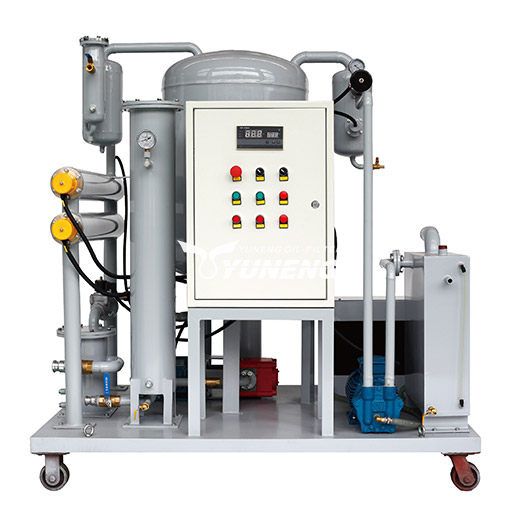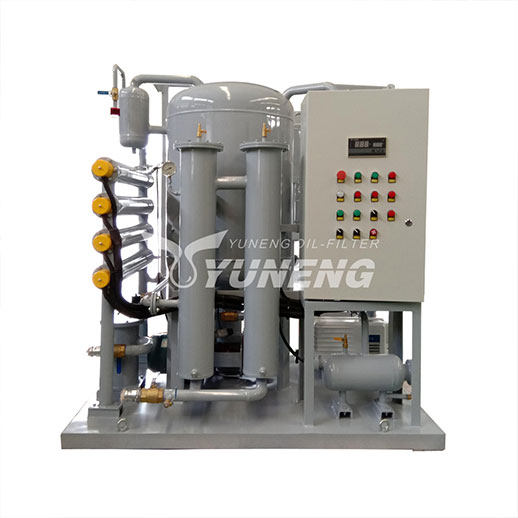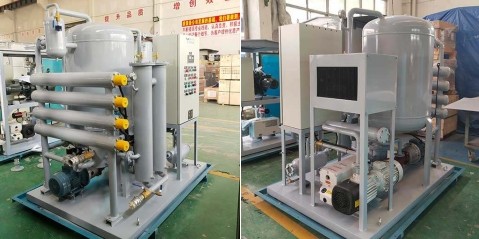Why is Oil Filtration So Important in the Hydraulic System?
In the contemporary industrial landscape, we rely on sophisticated hydraulic equipment and machinery that demand meticulous maintenance for optimal performance. Central to the efficiency of these systems is the hydraulic fluid, a critical component with specific requirements. A premium hydraulic fluid must possess the right viscosity, a high viscosity index, optional anti-wear protection, excellent oxidation stability, suitable pour point, rust inhibition, resistance to foaming, and compatibility with seal materials.
Research indicates that a significant 60-70% of hydraulic system failures stem from contaminants in the hydraulic fluid. Here we delve into the crucial role of oil filtration in hydraulic systems, exploring the fundamentals of hydraulic filtration, the various types of filters employed, the necessity of oil filtration, and the advantages associated with advanced filtration solutions such as Yuneng’s Hydraulic Filtration Machines.

What Is Hydraulic Filtration?
Hydraulic filtration is a process designed to remove impurities and contaminants from hydraulic fluid within a hydraulic system. The hydraulic fluid in such systems plays a pivotal role in ensuring the smooth operation of machinery and equipment. Over time, contaminants like particles, dirt, water, and other debris can accumulate in the hydraulic fluid, posing a threat to the system’s efficiency and longevity.
Hydraulic filtration involves the use of filters to capture and eliminate these contaminants, thereby maintaining the cleanliness and optimal condition of the hydraulic fluid. The primary goal is to prevent these impurities from causing damage to the hydraulic components, such as pumps, valves, and actuators.
A proficient hydraulic filtration system is crafted to eliminate various metal particles present in hydraulic system oil. These particles, such as copper and iron, act as catalysts, accelerating the degradation of the hydraulic system. The filtration process effectively eliminates these particles, contributing to an extended lifespan of the system.
Types Of Filters In Hydraulic Systems
Hydraulic systems rely on various types of filters to ensure the cleanliness and efficiency of hydraulic oil. These filters serve the crucial role of removing contaminants and particles that can otherwise compromise the performance and longevity of the system. Here are some common types of filters used in hydraulic systems.
By Function
- Suction Strainers: These are coarse filters installed at the inlet of the hydraulic pump to prevent large debris like nuts, bolts, or rags from entering the system and damaging the pump. They are typically simple mesh screens or basket-style filters with large pore sizes.
- Pressure Line Filters: These filters are installed in the high-pressure lines of the system to protect sensitive components like valves and actuators from smaller contaminants like metal particles and wear debris. They have finer pore sizes than suction strainers and can be of various types, such as cartridge, spin-on, or element-based.
- Return Line Filters: These filters are installed in the return line of the system before the fluid goes back to the reservoir. They remove contaminants generated during operation, such as wear debris and air bubbles, and help maintain the cleanliness of the fluid in the reservoir. They often have similar pore sizes and types as pressure line filters.
By Design
- Spin-on Filters: These are disposable filters with a threaded housing that screws onto the filter port. They are easy to replace but may not be suitable for high-pressure applications.
- Cartridge Filters: These filters have replaceable cartridges that fit inside a reusable housing. They offer a wider range of flow rates and pressure ratings and are often used in high-performance systems.
- Element-based Filters: These filters use replaceable filter elements that are housed within a permanent casing. They offer high filtration efficiency and are suitable for demanding applications.

Why Do You Need Oil Filtration In Hydraulic Systems?
Think of oil filtration as the body’s immune system for your hydraulic system. Just like our bodies need to fight off germs and viruses to stay healthy, hydraulic systems need to remove contaminants from their oil to prevent wear and tear, improve performance, and avoid costly breakdowns.
Here’s why oil filtration is so crucial for hydraulic systems:
To Prevent System Malfunctions
Ensuring timely oil filtration for the hydraulic system is imperative to ward off permanent damage and avert malfunctions. The selection of the appropriate fluid is equally crucial in the oil filtration process. With multiple options available in the market, petroleum-based fluids are often a reliable choice for hydraulic systems, considered standard for a myriad of applications. Effective oil filtration significantly contributes to extending the overall life of the system, thereby saving from unnecessary maintenance costs.
For Contamination Elimination
An essential reason for employing oil filters is the elimination of impurities and contaminants that are challenging to overlook. Regardless of the oil’s efficiency, foreign particles can infiltrate the machine through various means, such as metal filings, small burrs, and sand. Dirt particles may enter through damaged seals, and condensation of hot water at night can introduce water into the system. Contaminants like copper and iron in the hydraulic fluid pose a risk of causing extensive damage over time. Fortunately, using an effective oil filter can safeguard equipment from these elements.
In Support of System Maintenance
Oil filtration plays a pivotal role in the maintenance of hydraulic systems, ensuring prolonged service durations and optimized system performance. Regular replacement of oil filters when needed is crucial. A hydraulic system lacking an efficient oil filtration system is more susceptible to breakdowns, leading to increased maintenance costs. Robust oil filtration significantly contributes to enhancing the overall lifespan of the hydraulic system.
For Enhanced Productivity and Efficiency
Oil filtration not only aids in system maintenance but also elevates productivity and efficiency. Timely changes to oil filters can further extend the system’s life. Recognizing that oil contamination is a leading cause of hydraulic failures and downtime, effective oil filtration becomes paramount. By removing contaminants, oil filtration enhances system performance and contributes to a longer service life for the machine.
Benefits of Choosing Yuneng Hydraulic Filtration Machine
To solve the problem of hydraulic oil pollution, we can use the hydraulic oil purification machine manufactured by YUNENG to filter and purify.

The ZJC series hydraulic oil filtration machine is mainly designed for water ingress, emulsification, particle pollution and other problems of hydraulic oil, turbine oil, mechanical oil, compressor oil, refrigeration oil, etc. The machine is suitable for voltage grade ≤320 mm2/s industrial oil. Characterized by a compact structure and straightforward operation. Easily maintained and cost-effective.
- High-Efficiency Filtration: Yuneng filters boast outstanding removal rates for even the most microscopic contaminants, ensuring optimal equipment protection.
- Durable Construction: Built with robust materials and cutting-edge technology, Yuneng machines are built to last, requiring minimal maintenance.
- Ease of Use: Yuneng machines are designed for user-friendly operation, making filter replacements and maintenance a breeze.
- Cost-Effectiveness: With long filter life and efficient operation, Yuneng machines offer high value for your investment.
Investing in effective oil filtration is an investment in the long-term performance and health of your hydraulic systems. By choosing Yuneng, you can ensure your equipment runs smoothly, reliably, and sustainably for years to come.

